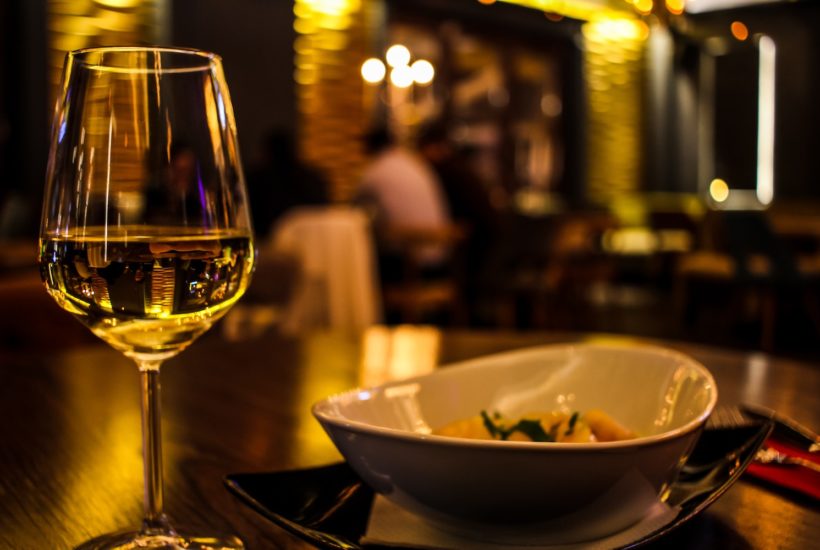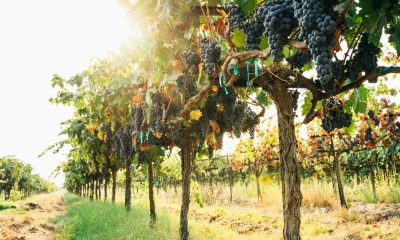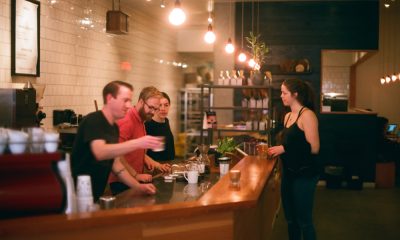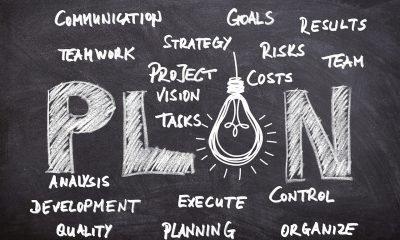Business
In sickness and in health: the wine industry under a COVID spotlight
Like fine cracks in a precious bottle under pressure, the pandemic has revealed flaws in the wine industry which we might not have noticed without it. Such insight however also comes with an opportunity; to improve the wine sector for the better as we adapt it for the 21st century. This is a chance for positive change, and in a time like this, we could all use a quality bottle or two.

The Covid-19 pandemic has changed key aspects of our society, and shed new light on many more that need it. The wine industry has not been spared, as the pandemic helped make clear the sector’s difficulties, especially for consumers. While there are some innovators out there like Palate Club trying to make buying wine a breeze, the process remains mired in traditions and marketing traps. It’s past time to take a critical look at it’s flaws in the light of the pandemic, and figure what can be done about it.
The pandemic has certainly done nothing to decrease our demand for quality wine, yet it imperiled our access to reliable supply. The problems it has highlighted are hardly new, and are endemic in the wine industry. Starting from finding a bottle, to figuring out what’s inside it, the journey is often too bitter (or if you are a big Sauvignon Blanc drinker, too sweet) to stomach, sometimes even for the planet.
Finding wine before or after Covid-19: is there a light at the back of the cave?
Before the pandemic we could stare at rows of bottles at the store each a subtle variation of the previous Chardonnay or Cabernet-Sauvignon. It was already a daunting process. The pandemic pushed it online, and actually seemed at first to make our lives somewhat easier.
Previously we had to face down a wide variety of eye catching labels, foreign or domestic appellations we had never heard of and meaningless blurbs of vague adjectives on every bottle. Grape varietal name recognition and familiarity with a brand was often the only real measure of confidence we had when picking a wine. Yet online we can find nearly endless information by looking up wineries, grapes, opinions, ratings, histories and reviews.
Unfortunately these sources are often just as vulnerable to the same marketing morasse. Paid affiliate blogs are indistinguishable from real ones, the adjectives in the descriptions are just as vague and vary widely even for the same wine, and wine rankings have been called into question for inflation, collusion and bias.
As a result the wine industry is divided with customers lost in between. On the one hand you have small-scale or independent wineries barely living off online direct to customer sales or local partnerships. And on the other you have big corporations flooding the industry with mass produced bulk products cleverly marketed to disguise their origin or quality.
The pandemic has only highlighted the unfair advantage skewing the wine industry towards these conglomerates. The options customers would normally be able to turn to, restaurateurs, local wine store experts and so forth, are suddenly out of reach. Palate Club has positioned itself as a lifeline. While it is still growing, they offer customers the central role in wine purchasing decisions and tackle several other flaws in the wine market.
Pandemic places health at the center of every debate, even wine
It is not unusual currently to have conversation to turn towards health. The pandemic has even revived the debate around wine and healthy living. It has shed light on wine’s unique role in the healthy mediteranean diet, and the advantages it could have if we unshackled it from the industry’s problems.
Wine came into the health spotlight in the 90s as part of the resolution of the ‘French Paradox’. The research pitted french longevity and heart health against their cheese and meat rich diet. Wine, red wine in particular, emerged as a strong explanatory factor. Research showed the high concentrations of resveratrol and several other macro-molecules could bolster the circulatory system (see 2019 medical review “Red Wine Consumption and Cardiovascular Health”) with benefits extending to broader physical or mental health.
Yet unlocking the health benefits of wine requires two things the pandemic are making even more difficult: moderation and quality wines. The first is pretty obvious, the over-consumption of alcohol is well known to be detrimental. The pandemic has cut down on the light social drinking, and encouraged lonely Burgundy binging, which is evidently not optimal for personal wellness.
The second is more complicated, because high quality wines are also healthier ones. But differentiating them from the poorer quality options is difficult. The respect a winemaker shows his grape is inevitably reflected in that wine’s caliber. Both from a health perspective and in terms of taste. Taste being a further domain in which the wine industry is still failing to deliver to its customers, especially mid pandemic.
Pandemic could offer a chance to overthrow the flawed taste monopoly
Is there anything more frustrating than enjoying something only to have someone else criticize your taste? Yet it seems to be the expected norm in the wine industry, where experts are paid to tell you why you are wrong about your appreciation (or lack thereof) of this Pinot Noir or that Zinfandel. Ultimately, however, taste remains subjective; especially when it comes to food or drink where our taste buds quite literally do not process information identically from person to another.
In the wine sector however it has become increasingly common to judge wines by arbitrary criterion favored by influential wine critics. These become ‘quality’ norms, when they are really just the individual’s preferences. Why not let the customer decide what they enjoy for themselves and remove the bias and stigma?
With the pandemic keeping us at home, we are finally starting to be able to develop our own sense of taste and confidence when it comes to wine. Without judgmental friends or experts interfering it becomes increasingly clear how much we limited ourselves to their preferences instead of engaging with our own. Perhaps this is why we are seeing the ‘full bodied’ or heavy, oaky Napa Valley reds give way before fresher and lighter alternatives?
Ultimately this is the domain where Palate Club really shines, setting out to revolutionize the way we choose and drink wine. By independently assessing each customer’s taste based on blind tastings and reviews they identify what customers prefer in the hugely complex world of wine (they collect nearly 200 data points per bottle). They then use their insights to send, or propose, bottles which are more likely to appeal to the customer directly.
They can also leverage this influence to help solve one of the most pressing problems in the wine industry, its impact on the environment.
Wine may be good for our health, but not all wine is good for the planet
It is a well documented phenomenon that wine does not have a spotless footprint when it comes to the environment. Vine growing requires incredibly intensive agricultural practices, or copious quantities of pesticides. The impact on ground and surface water from the pesticide use can be considerable, and exacerbated by water consumption or fertilizer use.
These harmful practices are often cost saving measures which allow winemakers to lower their prices, but everything comes with a cost, and sometimes it is the planet who pays it. Even ‘organic’, ‘green’ or ‘bio’ wines may not be as sustainable as we would like. Vigneron’s might be able to secure a ‘organic’ label by using ‘natural’ pesticides up to three times as much as a responsible farmer who is taking the time to apply artificial ones in much lower and more targeted concentrations.
Sustainable and responsible winemaking still exists, and is encouraged in many countries. True confidence is created when growers and winemakers are able to enter into respectful relationships with the environment, each other, and the customer. Relationships Palate Club is helping to build.
Choosing wines for such a potentially large audience allows Palate Club to be selective. Not only does this help them guarantee quality, but they can also screen for how wineries treat their terroir. After all, the relationship is mutual: how the growers treat the ground will invariably feedback into the flavor and quality of the wine. Palate Club is so determined to change the wine industry for the better, that fewer than 5% of the wines they approved to taste are accepted.
The current crisis has allowed us to reduce some of our ecological footprint already. But that is no reason not to do so even more, especially when it is made easy for us.
It is up to us to decide how will the world of wine look after the pandemic
The pandemic has seen an surge in demand for wine delivery services like Palate Club, and it could finally be time for the paradigms to shift on wine. With the end of the pandemic still not clearly in sight, we could at least work towards ending the death grip certain companies and figures have on the wine industry.
All the tools are there, we just need to seize them. Changing the wine industry will start when we change our own behavior. Retaking power from marketing companies and the big wine companies which fuel them will require no longer buying the prettiest label, and instead selecting wine the way it should have always been. By taste. And now, thanks to the technology innovators like Plate Club are offering, the pandemic is the perfect time to start.
—
(Featured image by Creative Vix via Pexels)
DISCLAIMER: This article was written by a third party contributor and does not reflect the opinion of Born2Invest, its management, staff or its associates. Please review our disclaimer for more information.
This article may include forward-looking statements. These forward-looking statements generally are identified by the words “believe,” “project,” “estimate,” “become,” “plan,” “will,” and similar expressions. These forward-looking statements involve known and unknown risks as well as uncertainties, including those discussed in the following cautionary statements and elsewhere in this article and on this site. Although the Company may believe that its expectations are based on reasonable assumptions, the actual results that the Company may achieve may differ materially from any forward-looking statements, which reflect the opinions of the management of the Company only as of the date hereof. Additionally, please make sure to read these important disclosures.

-

 Business1 week ago
Business1 week agoDebt-Fueled Markets, Zombie Corporations, and the Coming Reckoning
-

 Impact Investing4 days ago
Impact Investing4 days agoGlobal Energy Shift: Record $2.2 Trillion Invested in Green Transition in 2024
-

 Fintech2 weeks ago
Fintech2 weeks agoPayrails Secures $32M to Streamline Global Payments
-

 Crowdfunding8 hours ago
Crowdfunding8 hours agoDolci Palmisano Issues Its First Minibond of the F&P “Rolling Short term” Program
























